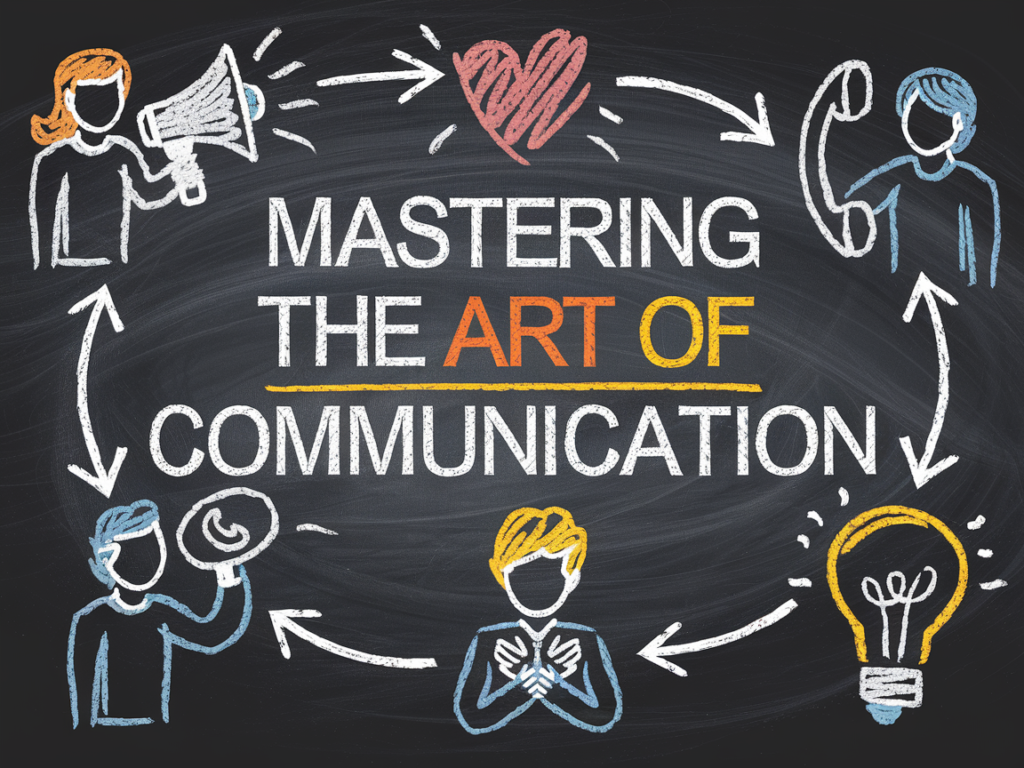
Effective communication is a crucial skill that can greatly enhance your personal and professional relationships. Whether you’re networking at a social event, engaging in business conversations, or simply connecting with people in your daily life, knowing how to talk to anyone can open doors and create meaningful connections. In this article, we will explore valuable tips and strategies to help you communicate with confidence and ease.

- Be Approachable and Open: Create an inviting atmosphere by maintaining an open posture, making eye contact, and offering a warm smile. Show genuine interest in the person you’re speaking with, and make them feel valued and heard right from the start.
- Active Listening: Listening attentively is a key component of effective communication. Give the speaker your undivided attention, and actively engage in the conversation. Demonstrate your interest by nodding, paraphrasing, and asking thoughtful questions. Avoid interrupting or thinking about what you’ll say next while the other person is speaking.
- Show Empathy and Understanding: Empathy is essential for building rapport and establishing a connection. Put yourself in the other person’s shoes, and try to understand their perspective and feelings. Validate their emotions and experiences, and respond with compassion and understanding.
- Use Open-Ended Questions: Encourage meaningful conversations by asking open-ended questions that cannot be answered with a simple “yes” or “no.” These types of questions invite the other person to share more information and lead to more engaging discussions.
- Practice Non-Verbal Communication: Non-verbal cues such as facial expressions, body language, and tone of voice can significantly impact how your message is received. Pay attention to your own non-verbal communication and ensure that it aligns with your words. Similarly, be mindful of the other person’s non-verbal cues to better understand their message.
- Tailor Your Communication Style: Adapt your communication style to the person you’re speaking with. Consider their personality, communication preferences, and cultural background. Some individuals may respond better to direct and concise communication, while others appreciate a more detailed and conversational approach.
- Maintain a Positive Attitude: A positive attitude can create a welcoming environment and make conversations more enjoyable. Focus on the positives, offer compliments when appropriate, and aim to uplift and inspire others through your words.
- Practice Mindful Speaking: Before speaking, take a moment to gather your thoughts and be intentional with your words. Be concise, clear, and articulate. Avoid rambling or using excessive jargon. Maintain a calm and composed demeanor, even in challenging or heated discussions.
- Respect Boundaries: Respect personal boundaries and avoid prying into sensitive or private matters unless invited to do so. Be mindful of cultural norms and customs, and adjust your conversation accordingly.
- Follow Up and Maintain Relationships: After engaging in a conversation, take the initiative to follow up with the person. Send a thoughtful message, connect on social media, or schedule a future meeting. Cultivate relationships by staying in touch and nurturing the connections you’ve made.
Remember, effective communication is a lifelong skill that requires practice and refinement. By implementing these strategies and approaches, you can confidently engage in conversations with anyone and create meaningful connections that can positively impact your personal and professional life.
We May Each A Small Commission From Amazon Affiliate Links In Our Articles.



